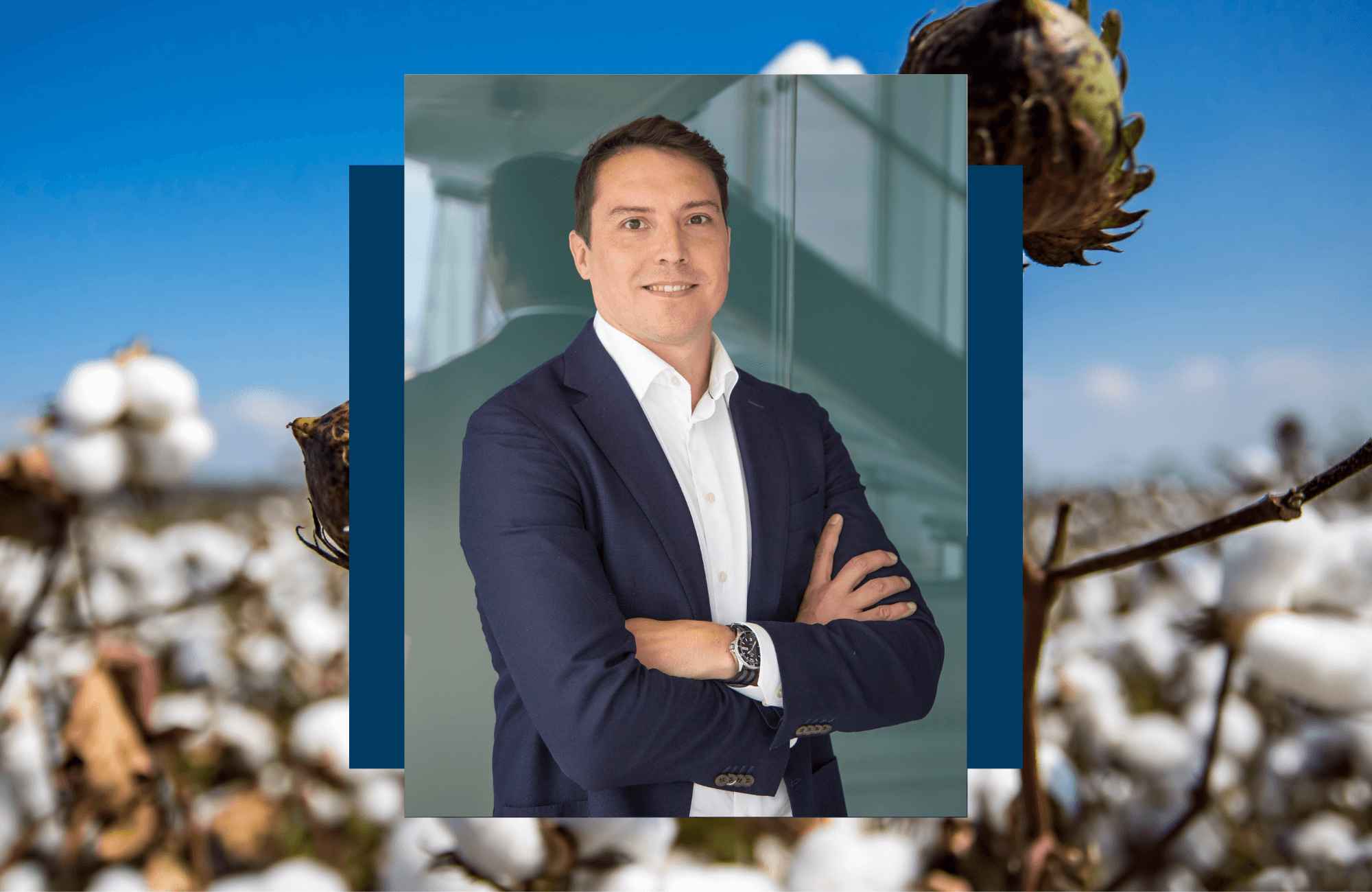
October 4, 2019
Responsibility · People · Supply chain
Partnering across sectors to shape the future of cotton

In honor of the first World Cotton Day organized by the World Trade Organization, Marc Doyon, Vice President Commodities at Gildan talks about the important industry partnerships that have helped shape the reputation of US cotton as an increasingly sustainable fiber.
Q. What are the advantages of cotton for making garments?
For the consumer, cotton is a natural fiber that offers a soft, comfortable feel which is breathable. On hot days, it pulls moisture away from the skin and allows the body to better regulate its temperature.
Q: Do you feel that cotton is a more sustainable resource vs. synthetic fibers?
Unlike manmade fibers, which can take hundreds of years to decompose, cotton is a natural fiber and remains biodegradable at the end of the garment’s life. Also, in terms of growing practices, cotton farmers have made tremendous improvements in the environmental footprint of their operations over the last 30 years. Farmers are business people like anyone else and so are motivated to achieve the most efficient use of their land each year. They have implemented new practices and technologies that help them use less water, less chemicals and yield more fiber. Ultimately, all these gains make their farms more profitable and the fiber more sustainable.
Q. What are some of the initiatives the US cotton industry has implemented that have helped it evolve?
I’d have to say that the consistent quality that you get with US cotton makes it a very reliable source of cotton and thus desirable to producers. This comes from the fact that every bale of the US crop produced annually, is tested and tagged. This allows buyers to know exactly what color, staple length and micronair, etc. they are getting. The USDA grading system is extremely precise, which allows manufacturers to maximize production while minimizing waste and energy costs.
In addition, because US farmers have the scale that allows them to invest in technology such as highly sophisticated GPS systems that target precise areas for irrigation and fertilizer, etc., they can minimize their impacts to the environment in terms of runoff into natural waterways.
US farmers also invest in large scale industrial harvesters that pick the cotton and compress it into bales, which results in less contamination of plastic then hand-picked cotton which is placed into bags. In addition, a substantial percentage of the cotton grown in the US is dryland, which means that the only source of irrigation is rainwater and natural flooding of waterways.
Q. How has the governance structure of the US cotton industry helped it stand out on a global scale?
The production of cotton in the US is the most highly-regulated and monitored cotton crop in the world. The conditions under which the US cotton crop is grown and harvested is regulated under very stringent rules and regulatory oversight governed by the USDA, USEPA and OSHA.
The US cotton industry is also supported by many organizations, including Cotton Inc, National Cotton Council and the USDA, which invest heavily in research and development for continuous improvement across all phases of the process. These organizations foster the promotion of modern farming practices and agro-science advancements that continue to optimize production to meet market demand while reducing impacts to the environment.
In addition, programs such as Cotton Leads and the US Trust Protocol establish goals and benchmarks for sustainable practices, that can be trusted to deliver a product that is grown in a way that is most respectful to the land and the environment, seeking to minimize any harmful impacts.
Q: How did Gildan get involved with the National Cotton Council’s US Sustainability Trust Protocol?
As one of the largest consumers of US cotton, we nurture the relationships we have with farmers, cotton associations and various industry partnership to ensure that the infrastructure for maintaining a world-class cotton industry is in place.
As a member of the National Cotton Council, Gildan was highly supportive of this multi-stakeholder Sustainability Task Force initiative. This task force which has been instrumental in the development of the Trust Protocol, which is a program established to ensure that US cotton is a responsibly-produced crop. The Trust Protocol has established six very specific targets for its participating member farmers to achieve by 2025.
We are quite proud to be part of this task force and support this effort by promoting it through our supply chain and to consumers globally, endorsing US cotton’s reputation as one of the most trusted cotton sources in the world.
More Gildan News

Article
June 5, 2024
Responsibility
World Environment Day Spotlight: Gildan Leaders on What Sustainability Means to Them

Article
April 26, 2024
Responsibility · People
World Day for Safety and Health: A Look into Gildan

Article
April 9, 2024
Responsibility